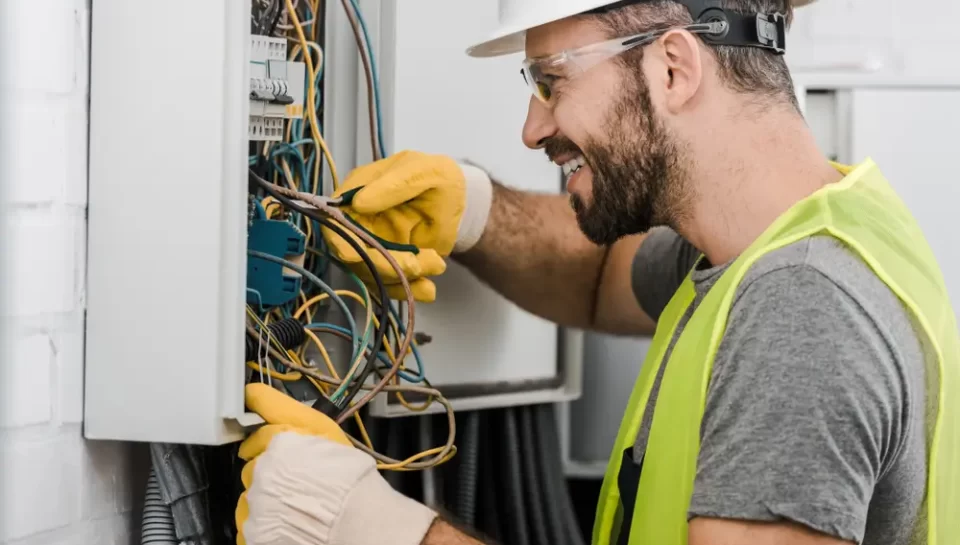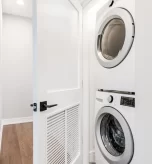Is your home’s wiring silently putting your family at risk?
Many electrical issues hide behind walls and ceilings—until it’s too late. A thorough electrical safety inspection can uncover these hazards before they become emergencies.
If you’re a homeowner, understanding the importance of electrical inspections is critical to protecting your home, family, and investment. Whether you are buying, renovating, or being proactive, this guide will help you. It covers everything you need to know. You will learn about the process, the cost of an electrical inspection, and what might fail.
Why Electrical Inspections Are Important?
Your home’s electrical system powers your lights, appliances, and technology. However, wires can degrade over time, outlets may become overloaded, and outdated panels can pose serious risks. That’s why electrical home inspections are so valuable.
Read More: How to Do Mold Inspections at Home Without Expensive Tools?
A professional home electrical inspection makes sure your home meets safety standards. It also reduces fire risk and boosts energy efficiency. It is especially recommended if your home is more than 25 years old. It is also good if you are buying a new property or planning a renovation.
What does an Electrical Safety Inspection include?
A home electrical inspection checks all significant components of your electrical system. Here’s what’s typically reviewed in an electrical inspection checklist:
- Condition of circuit breakers and electrical panels
- Proper grounding and bonding of electrical systems
- Outlet and switch functionality
- Wiring integrity, especially in attics and basements
- GFCI and AFCI protection in bathrooms, kitchens, and outdoor spaces
- Presence of outdated materials (e.g., aluminum wiring or knob-and-tube systems)
Some inspectors may offer an infrared electrical inspection. This uses thermal imaging to find overheating parts or hidden wiring problems you cannot see.
What Is In-Wall Electrical Inspection?
You might wonder, what is a wall electrical inspection, and is it necessary? This special inspection checks hidden wiring inside walls. It often uses advanced tools like infrared cameras or drones, which help inspect hard-to-reach areas, such as ceilings or roofs.
In-wall inspections are beneficial during electrical rough–in inspections. Inspectors conduct these inspections before builders install drywall in new buildings or remodels.
Electrical Rough In and Rough Inspections
A rough electrical inspection happens early in the construction process. It ensures workers install the wires, boxes, and conduit correctly. They do this before covering them with walls or finishes. Inspectors follow a rough electrical inspection checklist to confirm proper placement and safety.
Failing to get a certificate of electrical inspection during this phase can delay your project and require costly rework.
What Will Fail an Electrical Inspection?
One of the most common homeowner concerns is: What will fail an electrical inspection?
Some frequent red flags include:
- Exposed or damaged wiring
- Overloaded circuits or improper panel labeling
- Lack of GFCI outlets near water sources
- Missing smoke detectors
- Use of outdated electrical panels (like Federal Pacific or Zinsco)
If you’re unsure, getting a preliminary electrical inspection report can help you prepare before a formal inspection.
Cost of Electrical Inspections
Now, let’s talk numbers. The cost of an electrical inspection varies.
The price depends on your property’s size and the system’s complexity. Special tools, like thermal imaging or drones, can also affect it.
On average, an electrical inspection for a standard home ranges between $150 and $400. More detailed assessments, like infrared electrical inspections or drone inspections, may cost more. This is because they require special equipment and skilled experts.
At Key Property Inspection Group, we offer fair and transparent pricing for every electrical safety inspection we conduct. Our goal is to help you feel secure in your home, not stressed about hidden fees.
Certificate of Electrical Inspection
After a successful inspection, you’ll receive a certificate of electrical inspection—an official document confirming your electrical system meets code requirements. People often need this certificate for insurance, selling their homes, or passing city permitting processes.
Ensure that your inspector holds a valid license and has the authority to issue this document. Always keep it for your records.
Read More: Common Issues Found During Residential Property Inspections
When to Schedule a Home Electrical Inspection?
Consider booking a home electrical inspection if:
- Your home is over 25 years old
- You’re purchasing or selling a home
- You’ve experienced frequent power surges or outages
- You’re planning a major renovation
- Your insurance company requests an update
- You’ve added new appliances or high-demand devices
Regular electrical safety inspections can help detect problems early and keep your home safe year-round.
Why Choose Key Property Inspection Group?
At Key Property Inspection Group, we proudly offer detailed electrical home inspections that fit your home’s needs. We keep up with all building codes. We use the latest inspection technology, like infrared and drone inspections. We also provide clear and detailed reports.
Serving homeowners with reliable and professional service is our passion. With us, peace of mind comes standard.
FAQs
Q1. How often should I get an electrical inspection?
A good rule of thumb is to schedule one every 3–5 years, especially for older homes. Schedule one sooner if you notice any warning signs, like flickering lights or burning smells.
Q2. What should I do before an inspection?
Clear access to electrical panels, outlets, and attic/basement areas. Document any recent upgrades or issues.
Q3. Can I get a report after the inspection?
Yes, they usually include a detailed electrical inspection report. This outlines findings, recommendations, and whether your system passed or failed.
Q4. What’s the difference between a rough-in and a final inspection?
A rough electrical inspection checks the wiring before the walls are closed. The final inspection confirms that the team has installed everything correctly and safely.
Q5. Are electrical inspections required when selling a home?
The law does not always require a certificate of electrical inspection. However, it can help speed up the sale, boost buyer confidence, and meet insurance needs.
Conclusion
Homeowners can make better choices by understanding the process and staying proactive. This helps keep their homes safe and working well for years. Book your electrical safety inspection with Key Property Inspection Group today. Nothing is more important than your peace of mind.





